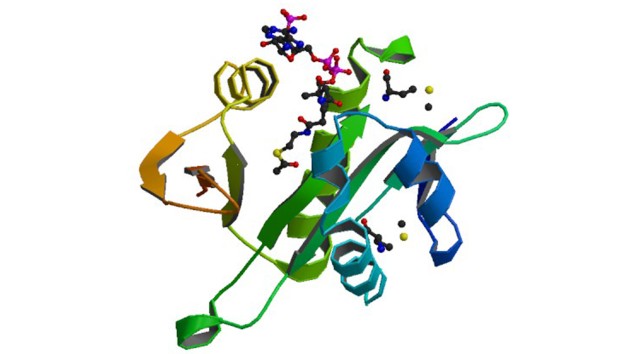Collection |
Collections
Filters
-
Collection Type
-
-
Collection |
 Invitation to New Highlights in Cardiovascular Diseases
Invitation to New Highlights in Cardiovascular Diseases
Cardiovascular diseases including heart failure and cerebrovascular disease rank as the second most morbidity and mortality in the developed countries. Considering the severity of heart failure symptom and disease progresses of the patients affected, the many researchers in the academia and pharmaceutical companies are eager to find more effective and safer approaches to overcome the diseases. Recent development of diagnostic approaches at ‘state-of-art’ levels as well as the intensive meta-analysis of clinical data has led to the novel concepts of diseases. Moreover, recent progresses in the cardiac research fields have been explosively expanded and have shown that many cellular components in the heart other than cardiomyocytes and vascular tissues also significantly contribute to the mechanisms of the cardiovascular diseases. Thus, we believe that the review series on the cardiovascular diseases and their pathophysiologies are timely and mandatory. For this special issue series of cardiovascular diseases, we invited four review articles on the implications of macrophages and mitochondria in the hearts. In addition, the new disease models regarding aortic aneurysm and heart failure with preserved ejection fraction were introduced. We believe that this special issue will draw much interest from students, researchers, pharmaceutical companies, and even from the health communities engaged in fighting against cardiovascular diseases.
-
Collection |
 Special Feature: New Paradigms in Host-Pathogen Interaction
Special Feature: New Paradigms in Host-Pathogen Interaction
There are increasing threats with a variety of virulent pathogens causing emerging, and re-emerging infectious diseases worldwide. Understanding the host defensive mechanisms and pathogenic strategies is essential for identifying novel strategies to combat and restrain the spread of infection. Recently, paradigms are shifting in terms of host-microbial interaction. The traditional concepts of host-pathogen interaction are being expanded into new insights on various areas including preclinical and clinical application to non-infectious diseases. In this special issue of host-pathogen interaction, we invited seven review articles highlighting the recent advances in host immune protective mechanisms and microbial pathogenesis during viral, mycobacterial, and parasitic infections, and the importance of gut microbiota in human health and diseases. This issue also covers the recent trial of microbial utilization for anticancer strategies. We hope that the basic and applied research in the host-pathogen interaction will promote intensive discussion and networking in the community.
-
Collection |
 Special Feature: Updated Reviews on Hypoxia
Special Feature: Updated Reviews on Hypoxia
Hypoxia is involved in many pathological and physiological conditions. Since Dr. Gregg L. Semenza first identified HIF-1 alpha in 1991, many researchers have investigated on hypoxia so vigorously, and 14,750 papers have been reported on PubMed by March, 2019. For the convenience of Experimental & Molecular Medicine audience, we present the most updated reviews on the role of hypoxia in diverse human diseases including cancer and aging, and also suggest therapeutic targets in this special issue.
-
-
Collection |
 Special Feature: Genomics for Future Medicine
Special Feature: Genomics for Future Medicine
It has been widely accepted that genome analysis has great potential to explain the causes of diseases and to eventually increase our quality of life. However, the current success is only the first step to achieving genuine future genome medicine. More evidence is still needed to support the clinical translation of the genomics studies. To overcome current hurdles and move one step toward the next generation of precision medicine, more research and evidence will be required. In this special issue of EMM, we present a collection of review articles on cutting edge topics in genomics and genome medicine.
-
Collection |
 Special Issue on Protein Acetylation: from Molecular Modification to Human Disease
Special Issue on Protein Acetylation: from Molecular Modification to Human Disease
Protein acetylation is one of the major post-translational modification that regulates cellular proteins to modify various molecular pathways. Recently, increasing knowledge of acetyltransferases and the molecular consequences of their actions are revealing the importance of acetylation in various human diseases from developmental disorders to cancer; thus, the need for an integrated understanding of the field is rising. This special issue on Experimental & Molecular Medicine presents reviews from each leader to introduce the field of protein acetylation.
-
Collection |
 Special Feature: Expanding the concepts of cancer metabolism
Special Feature: Expanding the concepts of cancer metabolism
Beyond the aerobic glycolysis proposed by Otto Warburg in the 1920s, our understanding of cancer metabolism has greatly evolved with the identification of new metabolic pathways with their potential roles and regulatory mechanisms in cancer. Uncovering the extensive network of cancer metabolism during last decades has been enormously accelerated by recent advances in cutting-edge technologies such as multi-omics and 13C metabolic flux analysis (13C-MFA). In this special issue of cancer metabolism, we invited four review articles highlighting the expanding features of cancer metabolism, covering from technological aspects of cancer metabolism research with a practical guide for using 13C-MFA to emerging roles of new metabolic pathways involving vitamin D and non-metabolic functions of metabolic enzymes.
-
Collection |
Special Feature: Synapse Assembly, Neural Circuit Development, and Brain Disorders
During the last century, our understanding of key mechanisms of synapse and neural circuit development has greatly expanded on multiple levels in parallel with advances in our understanding of molecular and cellular aspects of various neuron and synapse types. Experimental & Molecular Medicine's 2018 Special Issue, “Synapse Assembly, Neural Circuit Development, and Brain Disorders”, discusses how synaptic proteins contribute to various aspects of synapse assembly—and by extension, neural circuit assembly.
-
-
Collection |
Special feature: The microbiota in the chronic inflammation and autoimmunity
We share our bodies with microbiota whose cell count vastly outnumbers ours own. During last decades, development of the DNA-based sequencing methods has deepened our understanding of microbiota. Experimental & Molecular Medicine's third special issue in this year "The microbiota in the chronic inflammation and autoimmunity" discusses how intestinal epithelial cells modulate interactions between microbial habitants and gut, and how dysbiosis is linked to chronic inflammation and autoimmune diseases. Each of the three specially-invited review articles provides a current overview and perspectives for future studies about microbiota.
-
Focus |
 The methylation of histone and DNA on chromatin: A key for unlocking complicated biological processes
The methylation of histone and DNA on chromatin: A key for unlocking complicated biological processes
This special feature of Experimental & Molecular Medicine presents 5 reviews summarizing the general concepts of methylation of histones and DNA and providing an overview of the current information on how methylation regulates stem cell maintenance, differentiation, and cancer development.

 Special Feature: What are Ultrafine Particles?
Special Feature: What are Ultrafine Particles?
 Special Feature: Roles of Extracellular Vesicles in Human Diseases
Special Feature: Roles of Extracellular Vesicles in Human Diseases